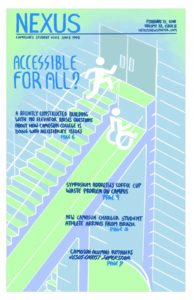Friendship is a mutually beneficial contract between two people. In a friendship you give and receive things like affection and empathy; one of the most important things that friendship has to offer is honesty. In your friends, more than anywhere else, you will find a clear mirror, reflecting your true virtues and vices.
Our true nature as human beings means absolutely nothing in isolation. The only way to observe the substance of our being is through interaction with other people.
There are three perspectives from which our interactions are seen. Ignoring any bystanders who do not have enough perspective to judge any action, these perspectives come from our enemies, our friends, and ourselves.

First, we see things through our own eyes. This perspective is dishonest because it has a positive bias. We can justify our own actions with any number of tiresome excuses. In fact, we do this constantly. Though we are at times able to recognize our actions as unjust, even in these cases it’s natural for us to rationalize our actions in one way or another.
Secondly, we can see our nature through the eyes of the enemy. Contrary to our own perspective, this perspective holds a negative bias. Our enemy—or perceived enemy—will likely exaggerate our faults and dampen our virtues. This person will be the most vocal about our flaws, so we will tend to hear what they are saying, make a note about a particular flaw that they speak of, and then write that flaw off as irrelevant because it was our enemy who first recognized it.
Finally, the third perspective through which our natures are judged is that of our friends. Simply by the fact that friends enjoy each other we can suggest that there would be some bias in this relationship, but I say that this is the point where we must censure ourselves. Because the friend is the only viable alternative to the self and the enemy, we are indebted to be the honest and unbiased voice.
We must not be afraid to be a jerk to our friends when they need it. There are far too many relationships that are formed on the basis of mutual brown-nosing butt kissery. In a friendship between two people, I have great doubt that either party lacks comprehension of any flaws of the other. The major inhibitor of honesty is the fact that there is an understanding that one or both of the friends would simply not be open to being told the truth of their nature—that if you were to tell the truth you would be labelled a “bad friend.”
So now the burden falls to us as the receiver of bad news. We must remain open to the idea that we have faults. When these are presented to us, our natural response will be to object, to call them lies, and to withdraw. Don’t do that. If we are ever to improve, we must take these truths to heart and realize that they have not been presented to us to tear us down but to build us up. A single friendship built on a foundation of mutual truth will do more for you than a thousand friendships built on boot licking. Find these people, and be honest with them; together you will do great things.
